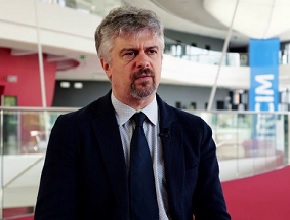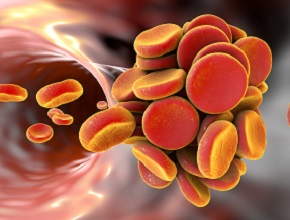Dr Mark Crowther is the chair of the Department of Medicine at McMaster University and member of the Royal Society of Canada and holds the Leo Pharma Chair in Thromboembolism Research at McMaster University.
If you were to name the 3 most important recent advances in the management of nonmalignant blood diseases, what would they be?
Mark Crowther, MD, MSc: Thanks very much. I’ve been asked to address what I think are the largest advances in benign hematology over the last couple of years. And those’ve been a time when there have been huge advances in multiple different areas. I’ll focus on a couple of different areas in response to this question.
Probably the biggest advance has been changes in the therapy of hemophilia. Hemophilia went from a condition where we used human-derived and then, subsequently, recombinant clotting factors. But over the last 5 years, there’s been a huge explosion of interest in hemophilia. We have highly effective gene therapies, which are now being rolled out into the population both in the form of clinical trials but also almost to the point now of approved therapeutic agents, which are going to cure the disease in many patients. We also have great advances in novel therapeutics—for example, a subcutaneous form of a drug, which is a really very interesting bispecific antibody that lasts for up to a month after a single subcutaneous injection and really just completely mitigates the disease. It’s really, really, really remarkable. We’ve also had lots of advances in [the development of] the traditional coagulation factors, with improvements in their half-life and their chemical activity.
A second area where there have been absolutely huge advances is sickle cell disease. Sickle cell disease was a benign but neglected disease that was very, very deadly. In many countries of the world, it’s a leading cause of death in young people who suffered from its consequences as a result of sickle cell crisis, its impact on the lungs, the kidneys, and elsewhere. And over the last 3 or 5 years, there’s been an explosion of interest in sickle cell disease, including gene therapy, CRISPR editing treatments—probably the first successful CRISPR editing that could be applied to a large-scale population is going to be in sickle cell disease—as well as drugs that change the chemistry of the blood, that reduce the frequency of sickle cell disease. And you’ll hear a bit about this from Dr. Verhovsek when she presents at the [MIRCIM 2021] conference.
And then—finally, I would say—there have been changes in our transfusion medicine. There have been many studies looking at transfusion medicine thresholds—when patients should or should not be transfused. There’s been the advent of many new blood clotting factors, for example, fibrinogen concentrates, and new guidelines around who should be transfused and when, as well as widespread adoption of massive transfusion protocols, which have really facilitated particularly the care of critically ill patients like trauma patients.
And the very last thing I’ll mention is, of course, direct oral anticoagulants. Although they’ve been around for a long time over the last several years, we’ve seen that direct oral anticoagulants continue to take over the market that was previously occupied by warfarin. They are a huge advance: They are easier to use, they do not require lab test monitoring, they have very few drug–drug and drug–food interactions, and patients vastly prefer them over warfarin.
So, it’s been an exciting time in benign hematology. There’s a lot of stuff going on right now and I look forward to presenting some of this information at the conference as well as listening to my colleagues presenting about it and answering live questions as part of the conference. Thank you.
 English
English
 Español
Español
 українська
українська








